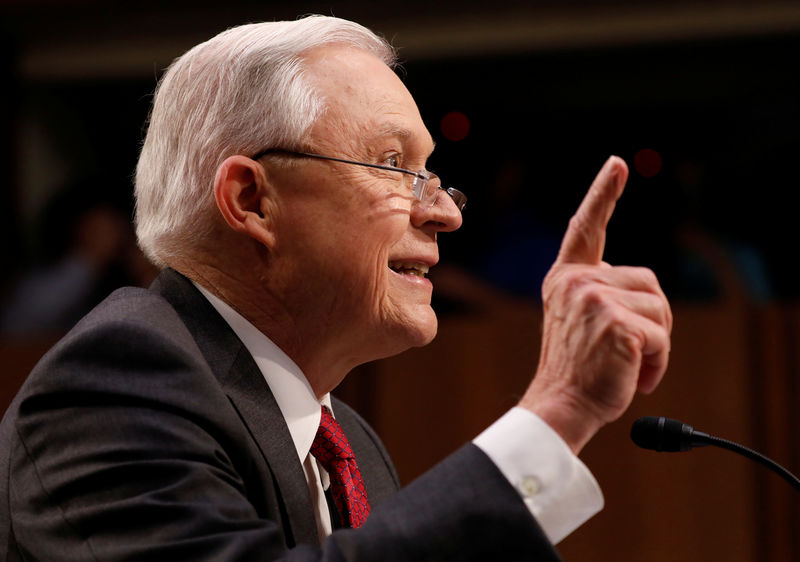WASHINGTON (Reuters) - U.S. President Donald Trump said on Sunday that if he could have one "do-over," it would be "personnel" decisions, including naming former Senator Jeff Sessions as his first U.S. attorney general.
"I would say if I had one do over, it would be, I would not have appointed Jeff Sessions to be attorney general ... That was the biggest mistake," Trump said in an interview aired on Sunday with NBC's 'Meet the Press' program.
After almost three years of investigations, Trump's presidency is still clouded by questions surrounding Russian interference to boost his candidacy in the 2016 U.S. elections and his subsequent efforts to impede inquiries into the matter.
Sessions, formerly a Republican senator from Alabama, was one of the earliest Trump administration casualties of the Russian election meddling scandal, which continues to be investigated by committees of the U.S. Congress.
In February 2016, Sessions became the first serving senator to endorse Trump when the New York reality TV star and real estate developer was still a presidential candidate.
Russian intelligence organizations a month later began a cyber campaign aimed at interfering with the 2016 presidential election, according to U.S. intelligence agencies.
During the campaign, Sessions, a close Trump adviser, met with Russian Ambassador Sergei Kislyak. Several others in Trump's inner circle met with Russians during this period, too.
In late July 2016, the FBI began investigating Russian meddling in the election.
After Trump's stunning election victory, Sessions was rewarded for his loyalty by being nominated as the top U.S. law enforcement official and head of the Justice Department.
In January 2017 in Senate confirmation hearings, Sessions said that during the campaign he had no communication with Russians. A month later, he was confirmed as attorney general.
Only two months afterward Sessions' campaign ties to Kislyak were reported. Democrats accused him of lying to Congress.
In March 2017, Sessions recused himself from the ongoing investigation into Russian interference in the elections, infuriating Trump, who thereafter frequently attacked Sessions.
In May 2017, Special Counsel Robert Mueller was appointed to take over the Russia probe from the FBI.
In November 2018, after months of being publicly ridiculed by Trump, Sessions resigned. He was replaced briefly by Matthew Whitaker until William Barr was confirmed to the job of attorney general. On Barr, Trump said, "He's brought sanity back."
Mueller's 448-page final report, released in mid-April, found insufficient evidence to establish that the Trump campaign engaged in a criminal conspiracy with Moscow, despite numerous contacts between the campaign and Russia.
The report also described attempts by Trump to impede Mueller's investigation, but stopped short of declaring that he committed a crime.
Asked on Sunday if he had read the Mueller report, Trump said, "I read much of it ... I read the conclusion." He again called the allegations that his campaign worked with the Kremlin "a hoax."

Trump told NBC: "I'll be honest with you, nobody even mentions Russia anymore since the Mueller report."